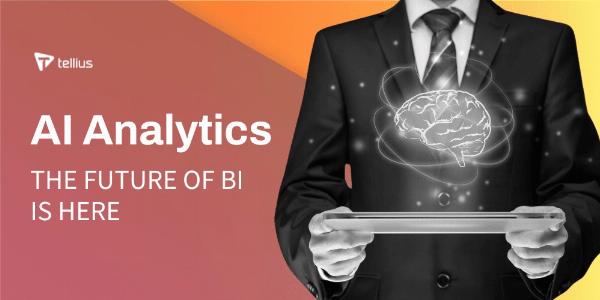How AI Analytics is Revolutionizing Business Intelligence

Strong 8k brings an ultra-HD IPTV experience to your living room and your pocket.
In the age of digital transformation, the integration of artificial intelligence (AI) into business intelligence (BI) is redefining how organizations process, analyze, and leverage data. The convergence of AI and BI offers unprecedented opportunities for companies to gain deeper insights, enhance decision-making processes, and achieve a competitive edge. This revolution in business intelligence is driven by AI's ability to analyze vast amounts of data quickly, uncover hidden patterns, and provide predictive insights.
Transforming Data Processing and Analysis
Traditional BI tools rely heavily on human input for data analysis, often requiring extensive manual effort to generate reports and insights. AI analytics automates these processes, significantly reducing the time and effort required. Machine learning algorithms can sift through massive datasets, identify trends, and generate insights with minimal human intervention. This automation not only speeds up data processing but also enhances accuracy by minimizing human error.
For instance, AI-powered BI tools can automatically clean and prepare data, ensuring it is ready for analysis. They can detect anomalies, fill in missing values, and even suggest the best ways to visualize the data. This level of automation allows data analysts to focus on interpreting results and making strategic decisions rather than spending time on mundane tasks.
Uncovering Hidden Patterns and Insights
One of the most significant advantages of AI in business intelligence is its ability to uncover hidden patterns and insights that may not be apparent through traditional analysis. Machine learning models can analyze complex and unstructured data, such as social media posts, customer reviews, and web activity logs, to reveal valuable insights about customer behavior, market trends, and operational inefficiencies.
For example, AI can analyze customer interactions across various channels to identify patterns in behavior, preferences, and sentiment. This information can help businesses tailor their marketing strategies, improve customer service, and develop products that better meet customer needs. Similarly, AI analytics can analyze sales data to identify trends and predict future demand, enabling companies to optimize inventory management and reduce costs.
Enhancing Predictive Analytics
Predictive analytics, powered by AI, is a game-changer for business intelligence. By leveraging historical data, AI analytics can make accurate predictions about future events, helping businesses make proactive decisions.
For instance, AI analytics can analyze past sales data to predict future revenue trends, allowing businesses to adjust their strategies accordingly. In risk management, AI can assess historical data to identify potential risks and recommend mitigation strategies. In customer retention, AI analytics can predict which customers are likely to churn and suggest targeted interventions to retain them.
Improving Decision-Making
The ultimate goal of business intelligence is to support informed decision-making. AI enhances this process by providing decision-makers with real-time, data-driven insights. AI-powered dashboards and reporting tools offer interactive and customizable views of data, enabling executives to explore different scenarios and make evidence-based decisions.
Moreover, AI analytics can provide prescriptive analytics, which goes beyond predictions to recommend specific actions. For example, if a predictive model forecasts a decline in sales, a prescriptive model might suggest promotional strategies to boost sales or identify which products to focus on.
AI analytics is revolutionizing business intelligence by transforming data processing, uncovering hidden patterns, enhancing predictive analytics, and improving decision-making. As businesses continue to generate and collect vast amounts of data, the integration of AI into BI will become increasingly essential. Companies that leverage AI-powered BI tools will be better equipped to harness the power of their data, make smarter decisions, and maintain a competitive edge in today's dynamic business environment.
Note: IndiBlogHub features both user-submitted and editorial content. We do not verify third-party contributions. Read our Disclaimer and Privacy Policyfor details.


